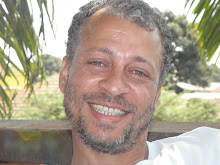quarta-feira, 17 de abril de 2013
E esta? U.S. drugs sting misses Bissau army chief - sources
U.S. anti-drugs agents who snared Guinea-Bissau's former Navy chief in a high-seas sting last week were also targeting the head of the West African state's army, sources familiar with the operation told Reuters. Guinea-Bissau General Antonio Indjai - widely seen as the coup-prone nation's most powerful man - declined to meet undercover agents in international waters where he had been told he could seal a lucrative deal to smuggle cocaine and supply weapons to Colombian rebels, sources said.
"He did not take the bait," said one of the sources with direct knowledge of the April 2 sting, in which former Navy chief Admiral Jose Americo Bubo Na Tchuto - labelled a drugs kingpin by the U.S. Treasury Department - was arrested. Guinea Bissau's military has long been accused of involvement in narcotics trafficking, using a jigsaw puzzle of mangrove-lined islands as cover against the region's notoriously weak law enforcement.
The capture of Na Tchuto - who prosecutors say was successfully lured offshore on the promise of a $1 million (656 thousand pounds) payoff for transhipping 1,000 kg of cocaine - marked one of the U.S. Drug Enforcement Administration's biggest successes in Africa, a region it says is increasingly used by smugglers moving Latin American drugs to users in the United States and Europe.
An estimated 50 tons of cocaine move through West Africa every year, according to the United Nations Office on Drugs and Crime, most of it heading north to European cities, where they are worth almost $2 billion on the streets. A spokesman for the U.S. Drugs Enforcement Administration declined to comment on the sting operation. A spokesman for Bissau's interim government, reached by telephone for comment about Indjai, said he would not answer any questions. The government has previously denied any links to trafficking. Na Tchuto, who is in detention in New York awaiting trial on a charge he conspired to smuggle cocaine to the United States, has previously denied involvement in the drugs trade.
Indjai seized control of Guinea Bissau in a coup last April before handing power the following month to a transitional government led by civilian president Manuel Serifo Nhamadjo, in a deal brokered by West African regional bloc ECOWAS. The European Union and the CPLP (Comunidade dos Paises de Lingua Portuguesa) grouping of Portuguese speaking nations have since refused to recognize Nhamadjo's administration, saying it remains under the control of military officials involved in the drugs trade.
INDJAI IS A 'HIGH VALUE TARGET'
Undercover informants for the U.S. Drugs Enforcement Administration had met with Indjai, Na Tchuto, and several other suspected traffickers several times since the middle of 2012 to set up the sting operation, according to the source.
Na Tchuto initially balked at the undercover informants' request he meet them offshore beyond the Bijagos Islands on the morning of April 2, first sending one of his aides before going out himself later in the day. Indjai was meant to take a boat offshore separately a few hours later to handle the weapons side of the deal but became suspicious, according to one of the sources, who had direct knowledge of the sting as it was happening. Another source, who was briefed by officials involved in the American operation, confirmed that Indjai had been targeted.
Na Tchuto's arrest sent shockwaves through the former Portuguese colony as it tries to organise elections to replace its fragile caretaker government. Guinea-Bissau army sources told Reuters on Wednesday that several military officials seen as allies of Na Tchuto had been put under house arrest as tensions soared between rival military factions blaming each other for the sting. Fissures in the military have triggered repeated gunfights in the ramshackle capital Bissau. The army has seized power from civilian rulers more than a dozen times since 1974 independence.
Na Tchuto and Guinea Bissau Air force chief Ibraima Papa Camara were placed on the U.S. 'drugs kingpins' list in 2010 after enforcement officials caught wind of a huge 2009 cocaine deal. Indjai, who is running the country's armed forces from the capital Bissau, has denied involvement in drugs smuggling and was never placed on the list. Camara too remains in Bissau, is still in charge of the airforce and has publicly denied involvement in smuggling "Indjai is a high value target. And he knows he is," said a Bissau-based diplomat, who asked not to be named.
"WE DON'T HAVE A STATE"
Indictments filed in a New York court last Friday by U.S. prosecutors against Na Tchuto and six other suspects say that conspirators in the arms and drugs deal told undercover agents on at least two occasions between July and September 2012 that Nhamadjo was being briefed in the plot. Nhamadjo's government has vehemently denied any drugs links and said it would seek to defend Na Tchuto, a 63-year-old veteran of Guinea Bissau's independence war. "We will do our duty to a citizen who took part in the liberation of Guinea Bissau and the Cape Verde islands," Prime Minister Rui Duarte de Barros said last Thursday.
Officials involved in efforts to combat organised crime in West Africa say the involvement of the DEA in the Na Tchuto arrest highlighted the weakness of regional governments to solve their own problems. "There had to be a U.S. police operation to fight the drug traffickers," said Pedro Pires, ex-president of Cape Verde who is now a member of the West Africa Commission on Drugs set up by former U.N. Secretary-General Kofi Annan this year. "This shows how weak this state is. If we cannot fight drug trafficking this shows we don't have a state or that the security and justice services just do not work."
REUTERS. Writing by Richard Valdmanis; Editing by Daniel Flynn and Ralph Boulton


